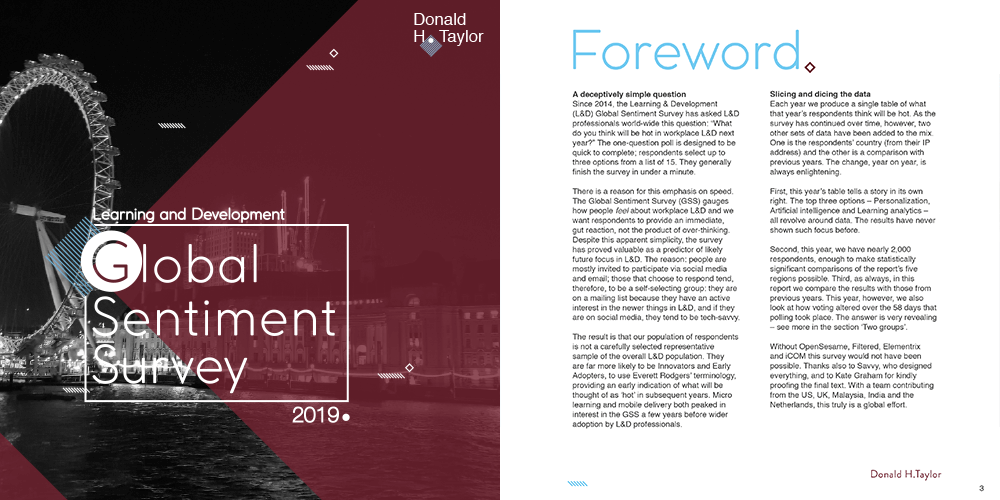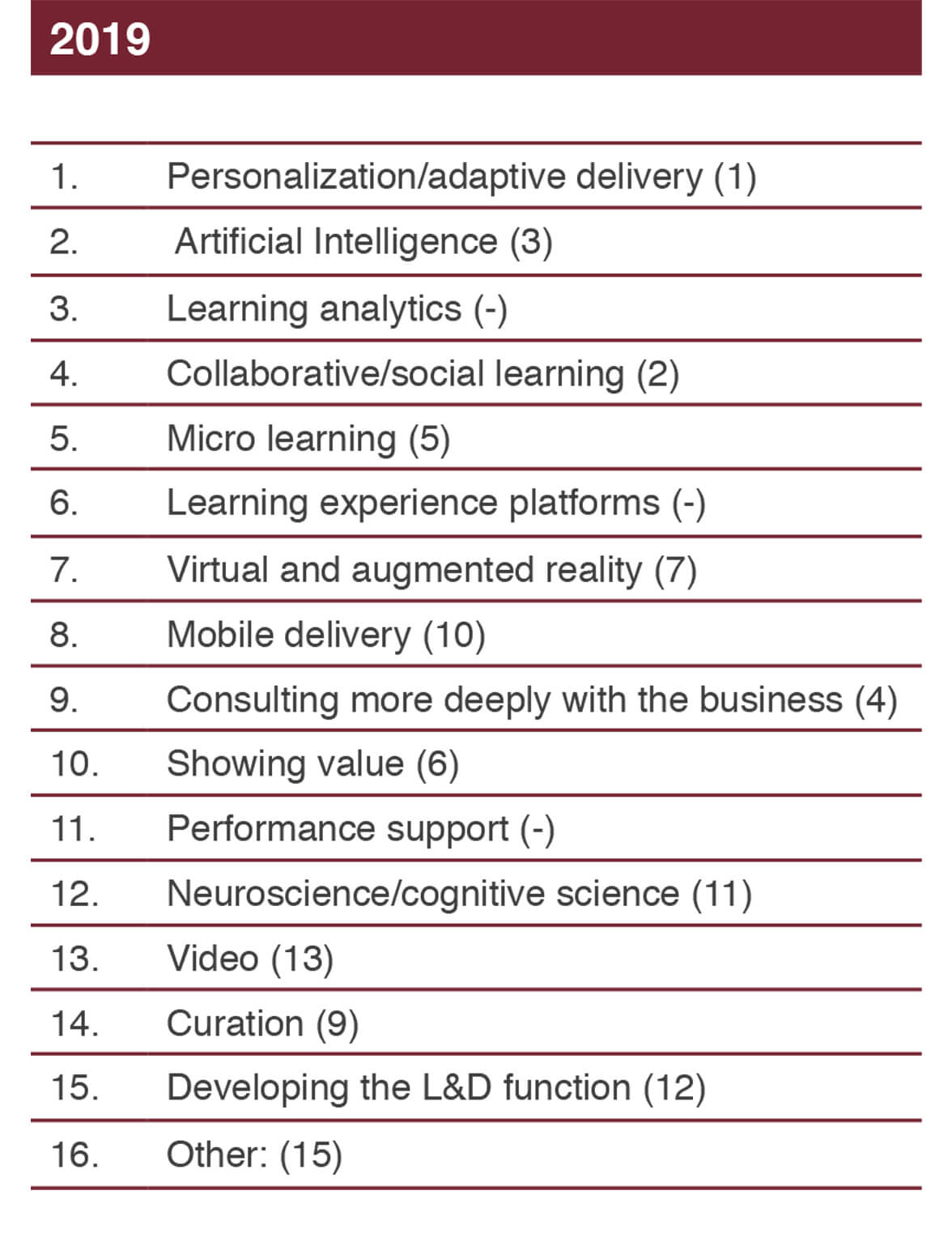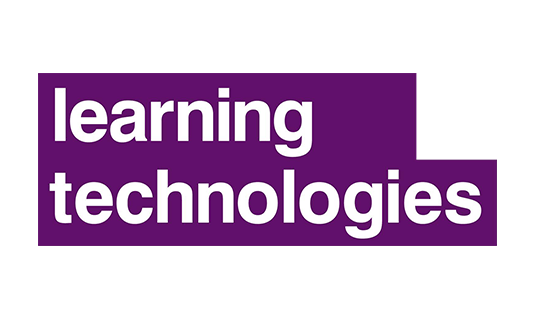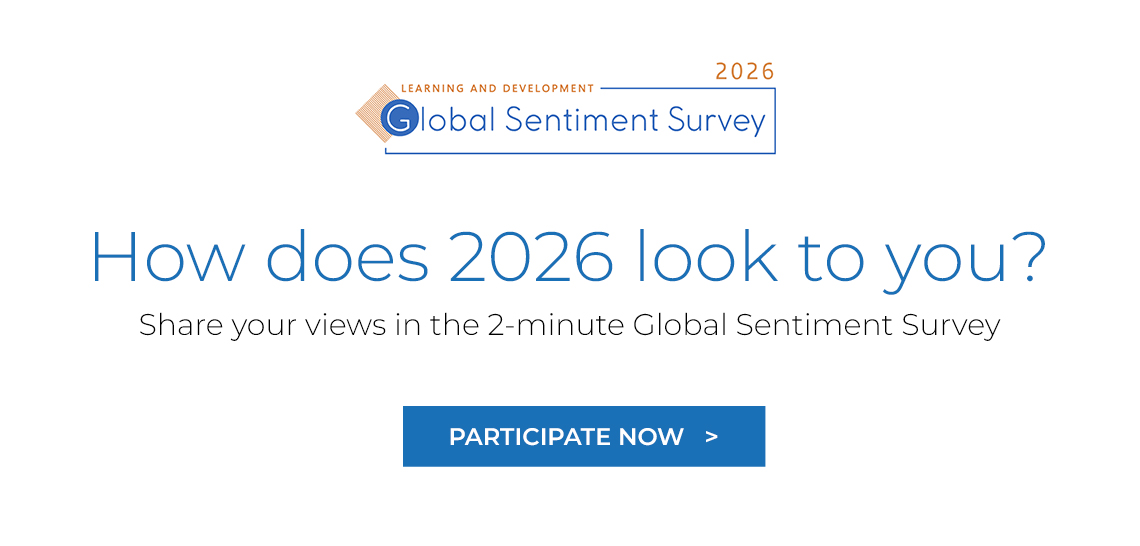GLOBAL SENTIMENT SURVEY 2019

Respondents voted for up to three of 15 suggested options, plus a free text ‘Other’ option. 1,953 voters participated from 92 countries, casting a total of 5,332 votes.

The year of data
In previous years, we have highlighted one or more option as ‘winners’. This year, however, the winner is not one option, but something that underpins the first three options on this year’s table: data. The implications for the L&D profession are profound.
An unusual moment
The top three options – Personalization/adaptive delivery, Artificial intelligence and Learning analytics – garnered between them 30% of the vote, about the same as the bottom 8 options. This is a normal distribution of votes, but it is not normal for the top three options to be consolidated around one issue.
Is this consolidation purely coincidental? Anything is possible, but it is very unusual for an option to rise from #3 to #2 in the list, as Artificial intelligence did this year, and for one to enter the table at #3, as Learning analytics did. The odds of both happening simultaneously are very slim indeed. These results almost certainly indicate a significant shift in outlook.
2019 – the beginning of change for L&D?
This year’s report shows a significant shift. Traditionally, L&D has revolved around the creation and delivery (in the classroom, or online) of content. Now it seems sentiment is shifting towards something else: personalized learning, supported by data. This approach to learning is not based on the need to create courses or resources, but rather the ability to find the right approach for a particular performance/learning need at a particular time. If that needs content, it may well be created by L&D. but it may also be sourced from partners, from the internet, or elsewhere. Will any of this need ‘delivery’? Or will Artificial Intelligence allow employees to find what they need for work as a seamless part of their work?
These results are only the first hints at change, but they do seem like a seismic shift in how our respondents view the role of L&D.
Cautionary notes
1) As noted in the report, our 1,953 voters are most likely to be self-selecting Innovators and Early adopters. So while this emphasis on data is keenly felt among those thinking about these issues deeply, it is unlikely currently to be widely spread across the L&D community.
2) Change in L&D happens slowly, as we have seen with thinking about the importance of informal and social learning. From work by the likes of Jay Cross, Jane Hart and Charles Jennings in the mid-2000s, supporting informal learning has only recently been widely accepted as an integral part of L&D’s role. In addition, while accepted as important, it is still rare for it to be effectively implemented. This current enthusiasm around data will likely take many years to manifest itself in L&D’s daily work.
Using the report
Please feel free to share information from the report. When you do, please cite it like this:
Donald H Taylor’s L&D Global Sentiment Survey 2019, https://donaldhtaylor.co.uk/research_base/global-sentiment-survey-2019/
On social media, please use this hashtag: #GSS19

 L & D Global Sentiment Survey Results, 2019
L & D Global Sentiment Survey Results, 2019








Disclosure: I am a non-executive director of Filtered, a UK start up that provides intelligent learning recommendations using AI, the non-executive chairman of the Learning and Performance Institute a professional body for L&D practitioners, and chairman of the Learning Technologies Conference, a group of conferences dedicated to supporting learning at work using technology.

